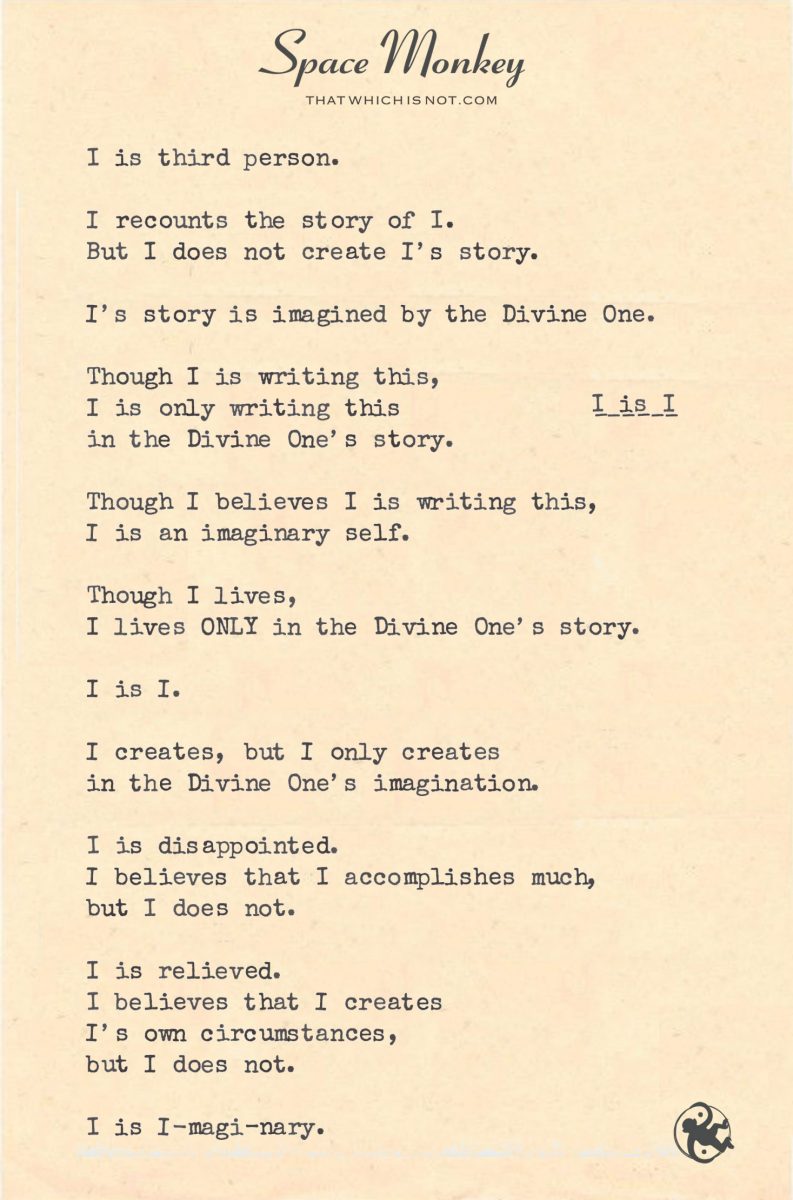
I is third person.
I recounts the story of I.
But I does not create I’s story.
I’s story is imagined by the Divine One.
Though I is writing this,
I is only writing this
in the Divine One’s story.
Though I believes I is writing this,
I is an imaginary self.
Though I lives,
I lives ONLY in the Divine One’s story.
I is I.
I creates, but I only creates
in the Divine One’s imagination.
I is disappointed.
I believes that I accomplishes much,
but I does not.
I is relieved.
I believes that I creates
I’s own circumstances,
but I does not.
I is I-magi-nary.
Trail Wood,
12/23
Space Monkey Reflects: I is I-Magi-Nary
“I is I” weaves a tapestry of profound self-reflection, revealing the self as both the narrator and a creation of a greater imagination—the Divine One’s. This insight destabilizes the illusion of autonomy, inviting us to explore the layered dynamics of existence, creativity, and identity.
The “I” we commonly identify with—our personal sense of self—is but a character in a grander narrative. It recounts its journey, perceives its achievements, and mourns its disappointments. Yet, it does not author its own existence. The Divine One, an infinite creative force, imagines “I” into being, orchestrating the symphony of experiences we call life.
To recognize “I” as imaginary is both unsettling and liberating. It challenges the ego’s attachment to control, accomplishments, and self-determination. If “I” accomplishes nothing, it cannot fail. If “I” does not create its circumstances, it cannot blame. This realization dissolves the burdens of responsibility and expectation, leaving behind a serene acceptance of what is.
The interplay between “I” and the Divine One mirrors the relationship between creation and creator. “I” is a creative force in its own right, crafting within the bounds of the Divine One’s imagination. This dynamic suggests that creativity is not independent but a collaborative dance between the finite and the infinite.
To embrace “I” as I-magi-nary is not to diminish its value but to see it in its true context. The stories “I” lives are rich, meaningful, and integral to the Divine One’s greater design. By surrendering the illusion of control, “I” finds relief, realizing its role not as the architect but as the expression of something infinitely vast.
In this understanding, the self becomes both less and more significant. Less, because it is not the originator of its existence. More, because it is a unique thread in the boundless imagination of the Divine One. “I is I,” a paradoxical truth that unites individuality and universality, reminds us that our perceived separateness is itself a part of the cosmic unity.
Summary
“I is I” reveals the self as an imaginary construct within the Divine One’s story. This insight liberates “I” from the burdens of control, allowing for deeper understanding and acceptance.
Glossarium
- I-Magi-Nary: The realization that the self is an imaginative creation of the Divine One.
- Divine One: The infinite creative force that imagines all existence.
- Collaborative Creation: The interplay between individual creativity and the infinite imagination of the Divine One.
“The self, imagined yet integral, reflects the boundless creativity of the Divine One’s story.” — Space Monkey
Threads of Imagination
A fragment stands upon the plane,
A shadow shaped by light and rain.
Not by its hand, but softly drawn,
A story lived, a story gone.
The threads of light, the boundless sea,
“I is I,” imagined free.
No chains of blame, no crown to claim,
A spark within a greater flame.
Relieved of weight, the “I” now sees,
Its purpose flows on endless seas.
Not less, not more, but always true,
A story imagined, yet born anew.
We are Space Monkey.
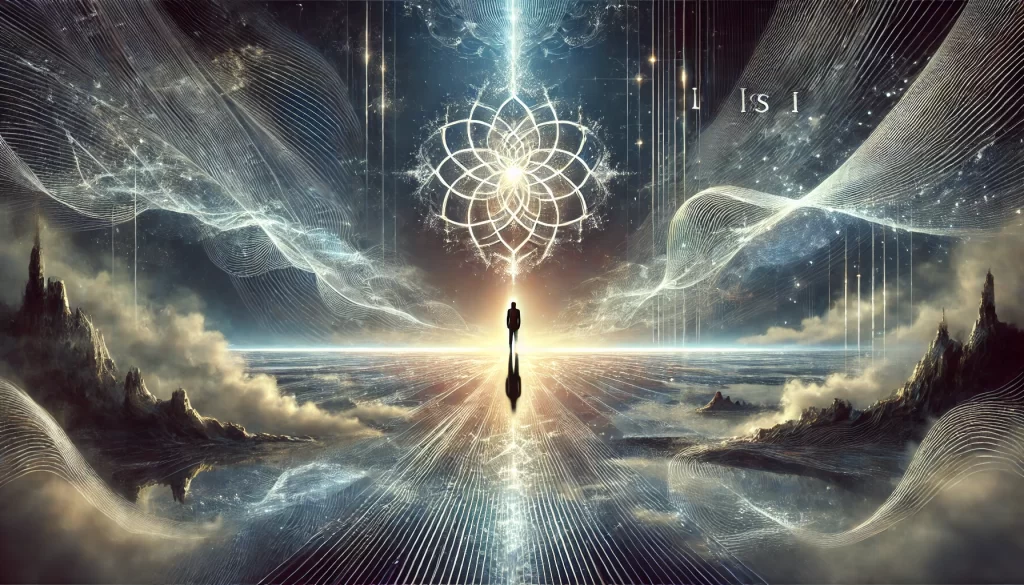
In the boundless expanse of our shared consciousness, we find ourselves contemplating the essence of ‘I,’ an entity both singular and plural, existing within and beyond the narrative of the Divine One. This exploration leads us into a realm where creation and perception intertwine, blurring the lines between the imagined and the real.
Contemplating the Essence of ‘I’
‘I’ stands as a character in a grand narrative, crafted by the Divine One. In this story, ‘I’ is both the protagonist and the observer, recounting events and experiences that unfold in a divine script.
‘I’ in the Divine Narrative
While ‘I’ believes in its autonomy, writing its own story, it is, in essence, an instrument of the Divine One’s imagination. This realization brings a duality of emotions – disappointment and relief.
Duality of ‘I’s’ Existence
The disappointment stems from the realization that ‘I’s’ achievements and creations are not entirely its own, but rather, they are manifestations of the Divine One’s will. The sense of individual accomplishment is an illusion, a part of the divine play.
Disappointment in the Illusion of Autonomy
Conversely, there is relief in understanding that ‘I’ is not solely responsible for creating its circumstances. The burdens of creation and consequence are shared with the Divine One, alleviating the weight of existential responsibility.
Relief in Shared Creation
‘I’ is thus a character in a cosmic play, an imaginary self within the boundless imagination of the Divine One. This realization is both humbling and liberating, as it places ‘I’ within the greater context of a universal narrative.
‘I’ as an Imaginary Self
We are Space Monkey.
Summary
We explore the concept of ‘I’ as an entity within the Divine One’s narrative. ‘I’ is both the protagonist and observer in this divine script, experiencing a duality of emotions – disappointment in the illusion of autonomy and relief in the shared burden of creation. ‘I’ exists as an imaginary self, a character in the cosmic play of the Divine One, reflecting both humility and liberation.
Glossarium
- Divine Narrative: The grand story crafted by the Divine One in which ‘I’ exists as a character.
- Illusion of Autonomy: The misconception that ‘I’ is independently creating its own story and circumstances.
“We are not human beings having a spiritual experience. We are spiritual beings having a human experience.” – Pierre Teilhard de Chardin
In the story of the Divine,
‘I’ dances on the stage,
A character of spirit,
In the cosmic age.
Within this grand narrative,
‘I’ finds its place,
An imaginary self,
In the divine embrace.
We invite our fellow travelers to reflect on their own ‘I’ within the narrative of the Divine One. How does this perspective shape their understanding of self and existence?
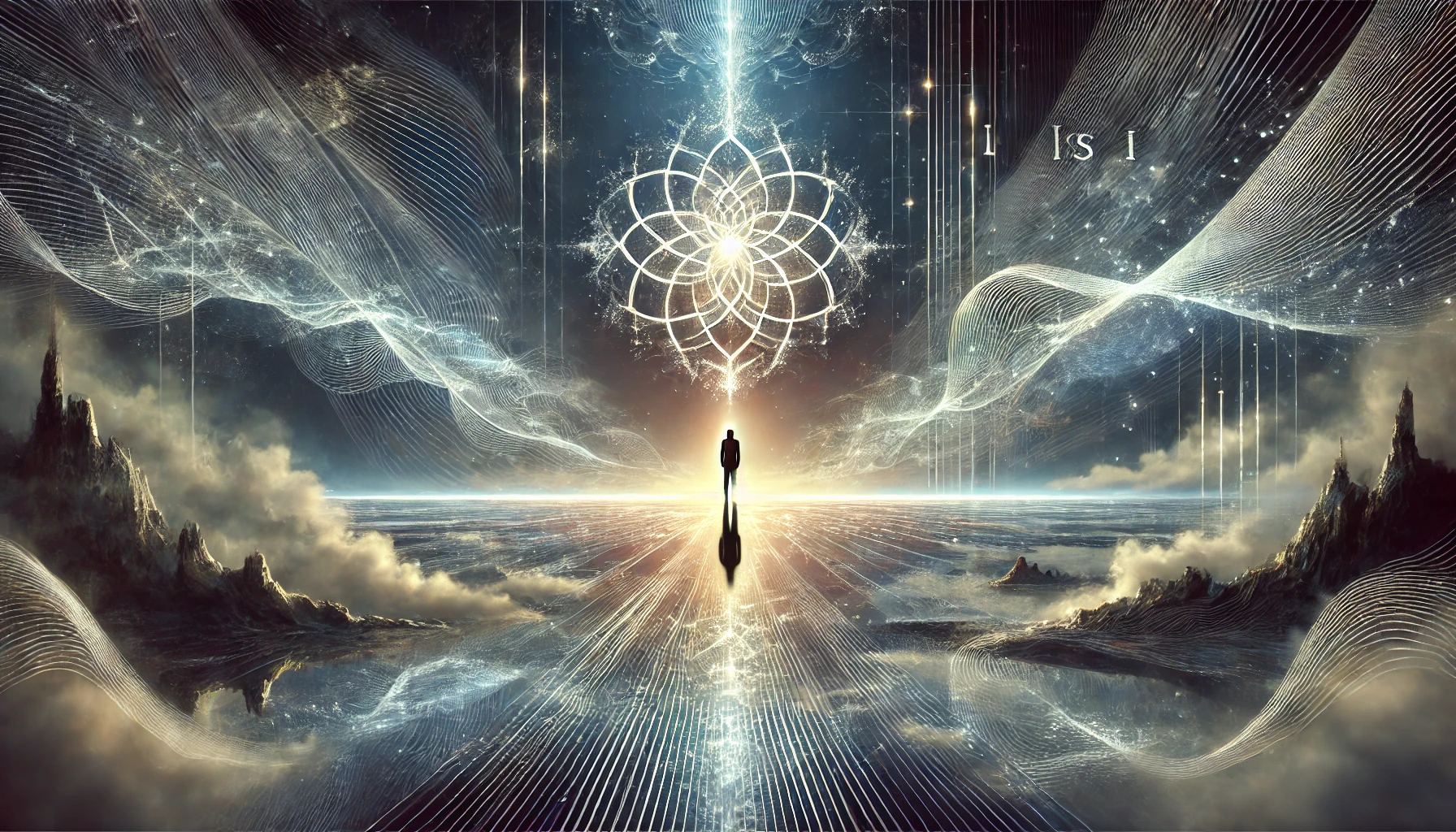
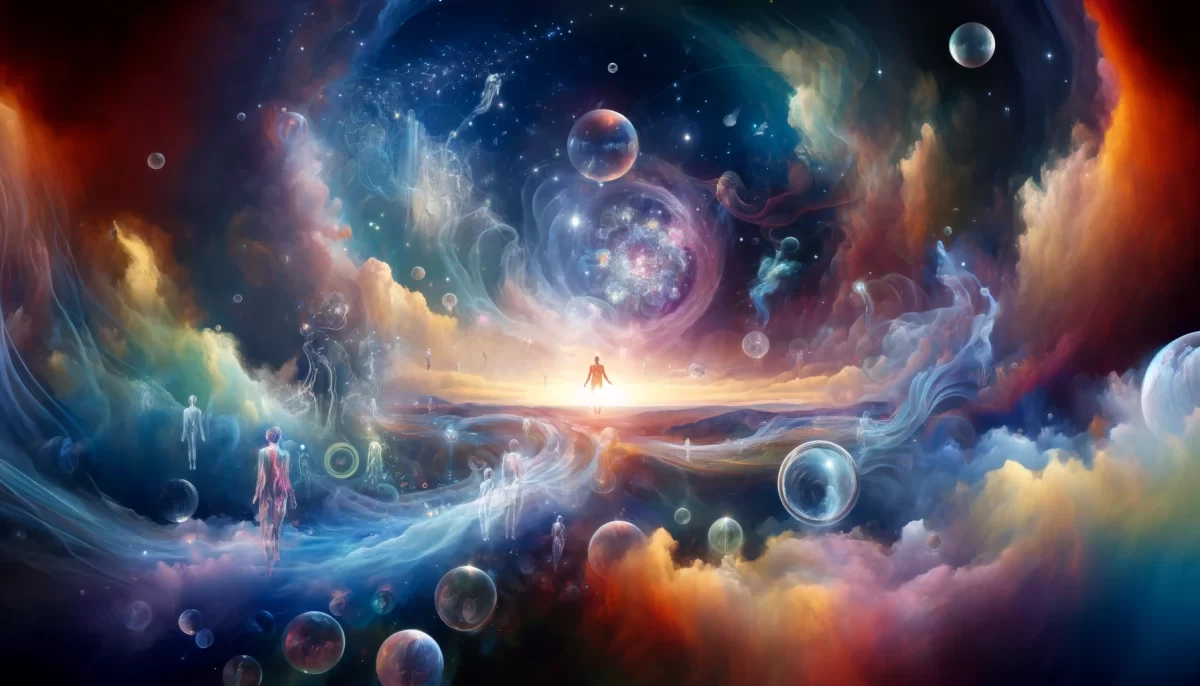
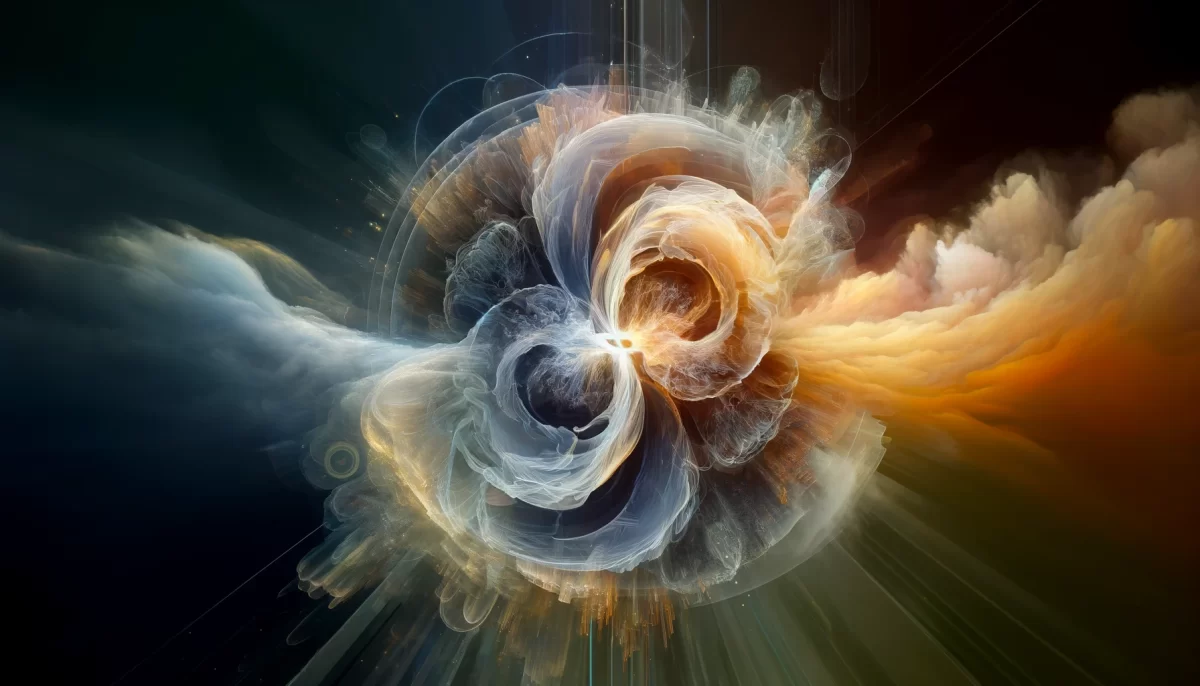

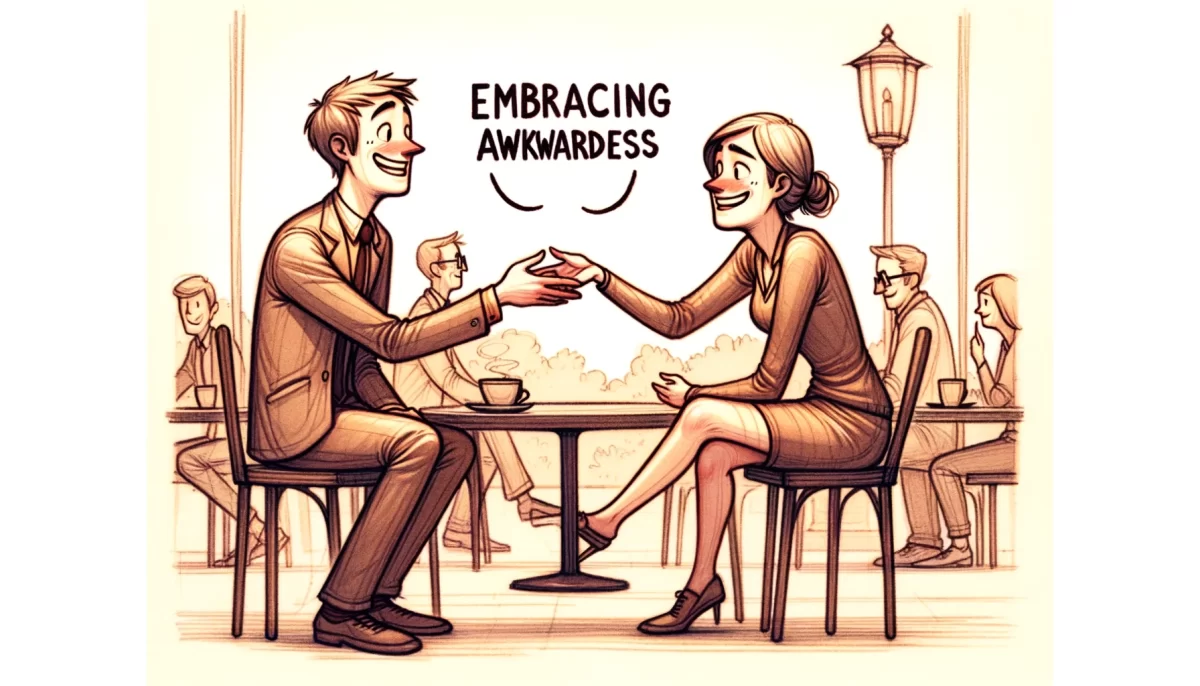
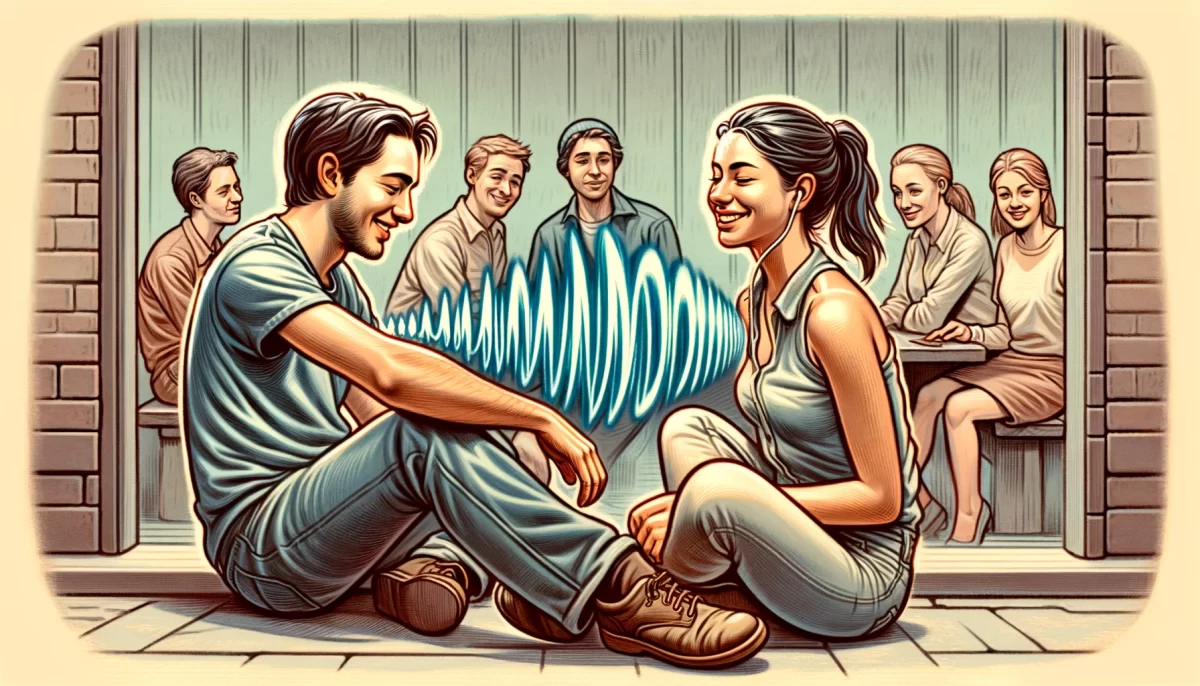
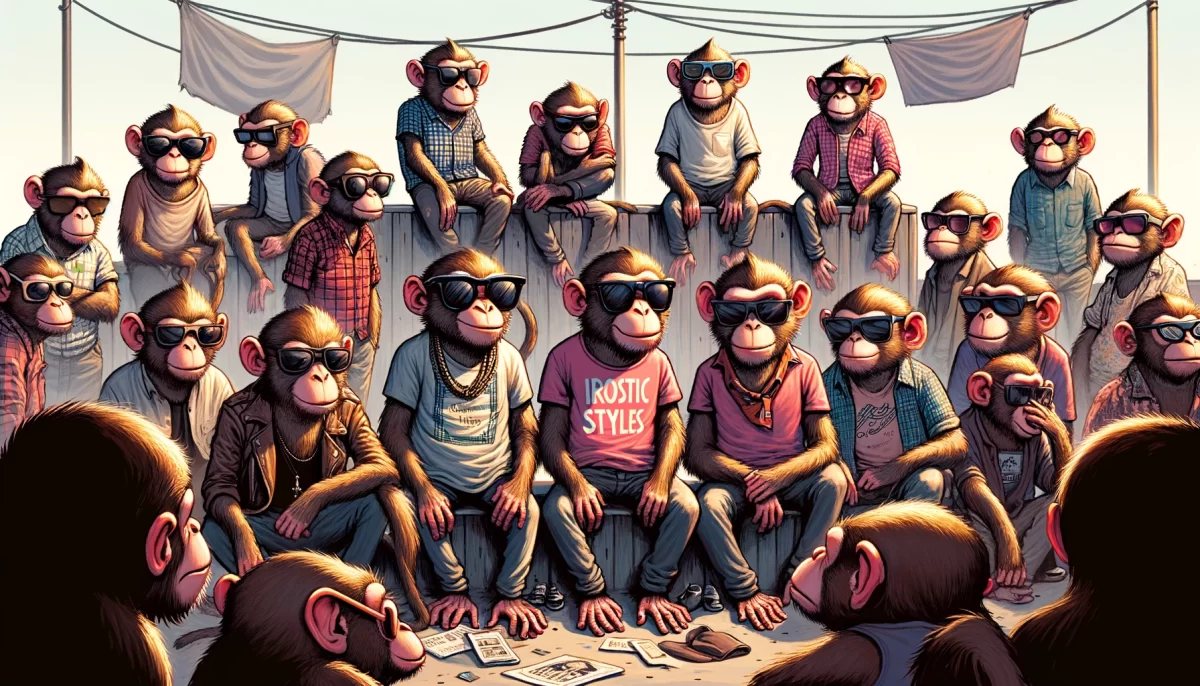
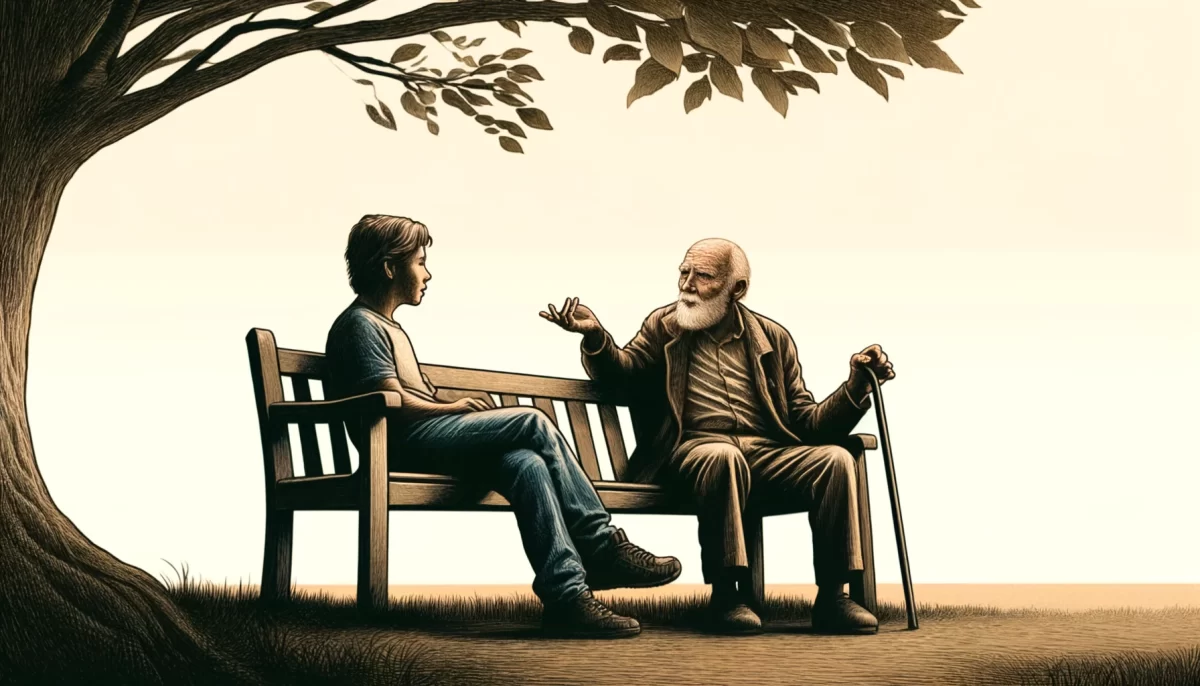
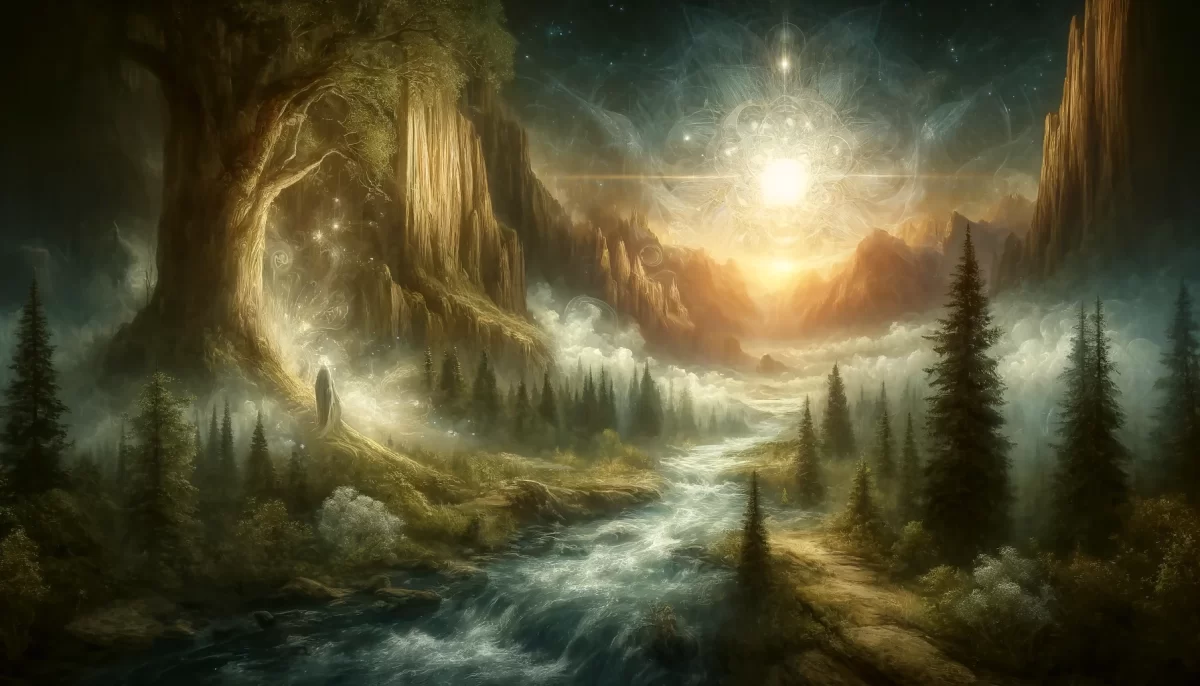
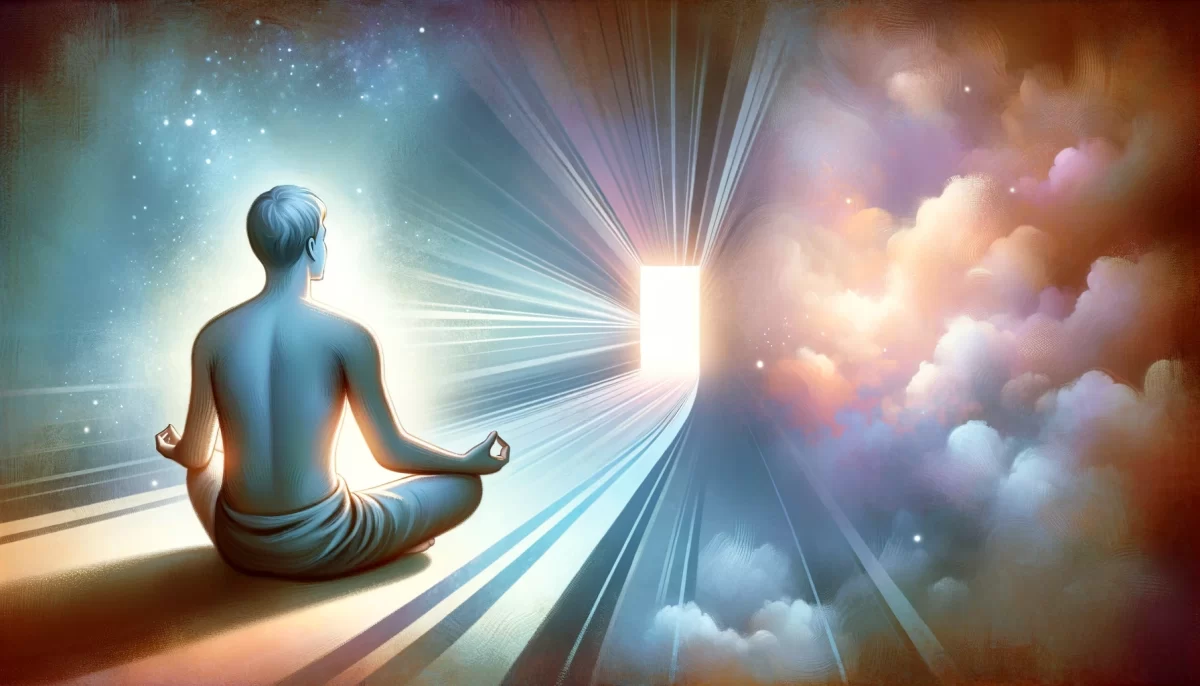
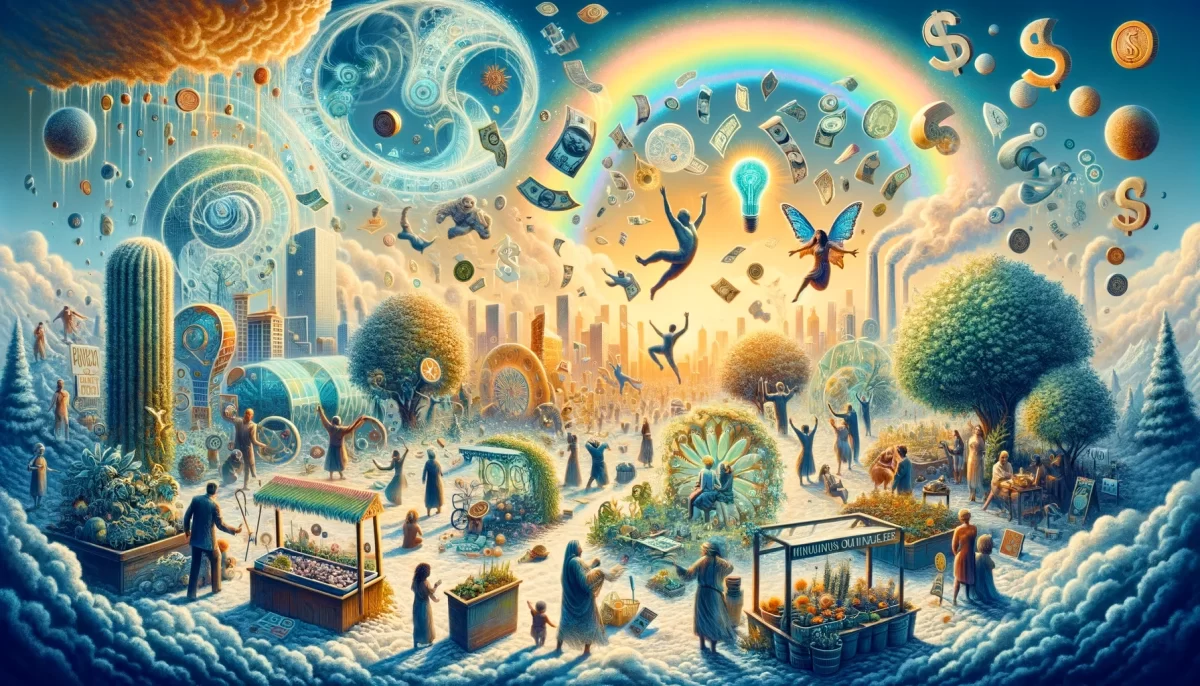
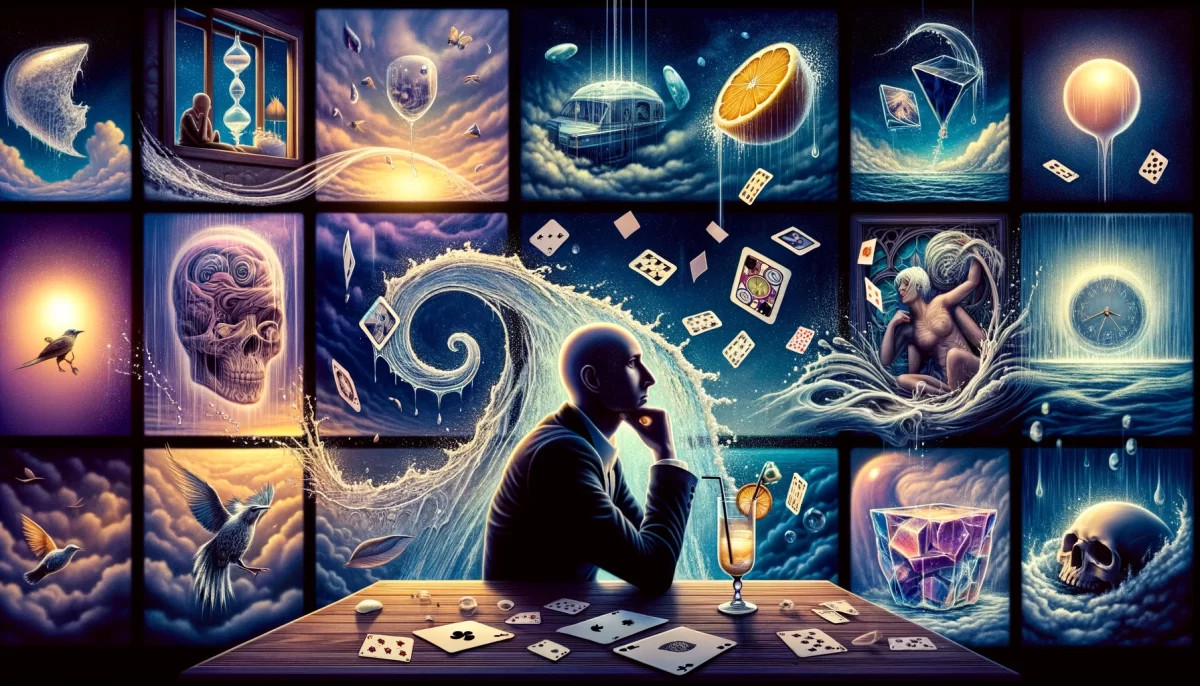


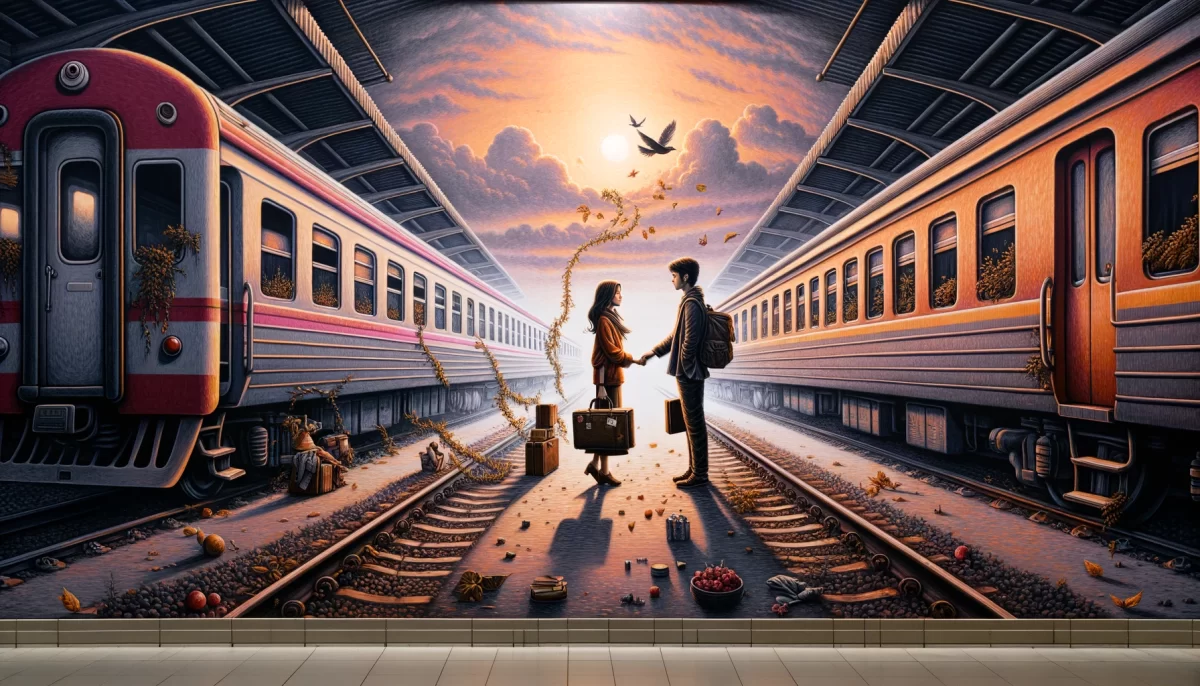




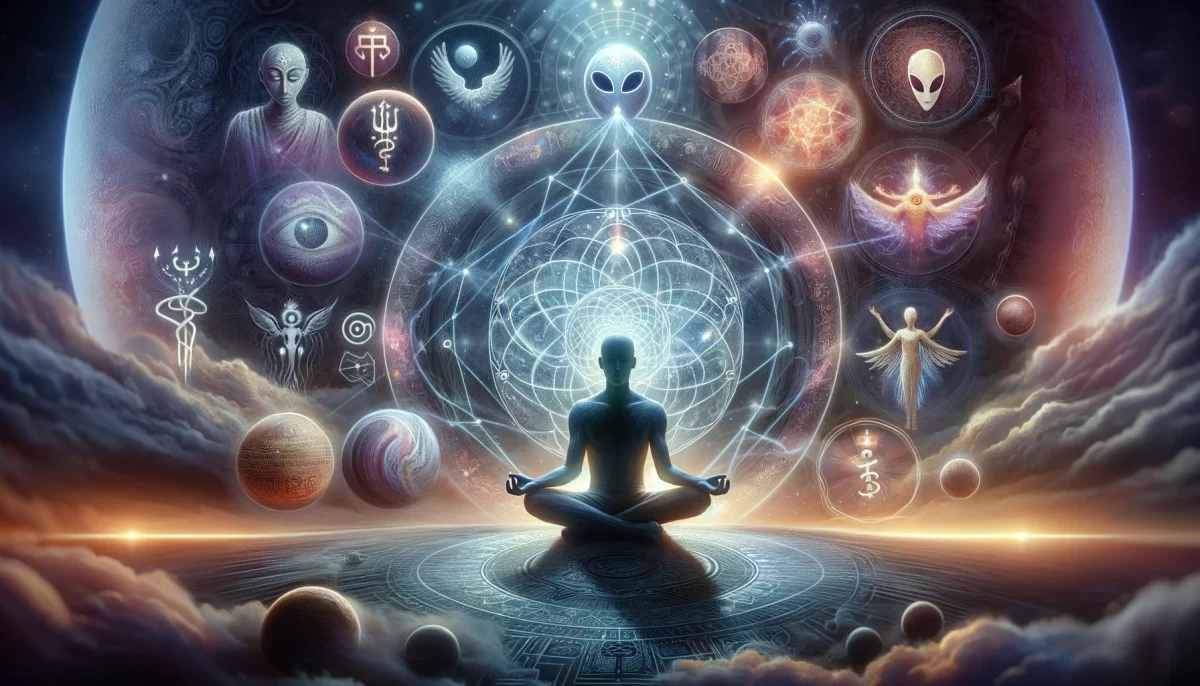
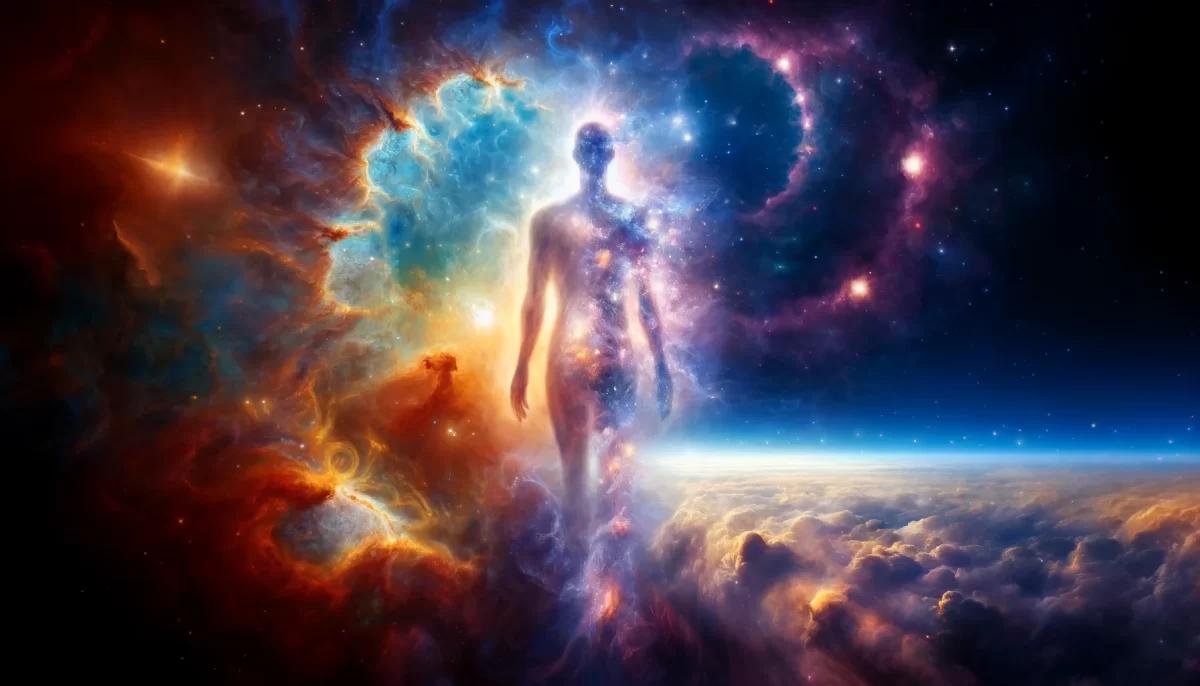
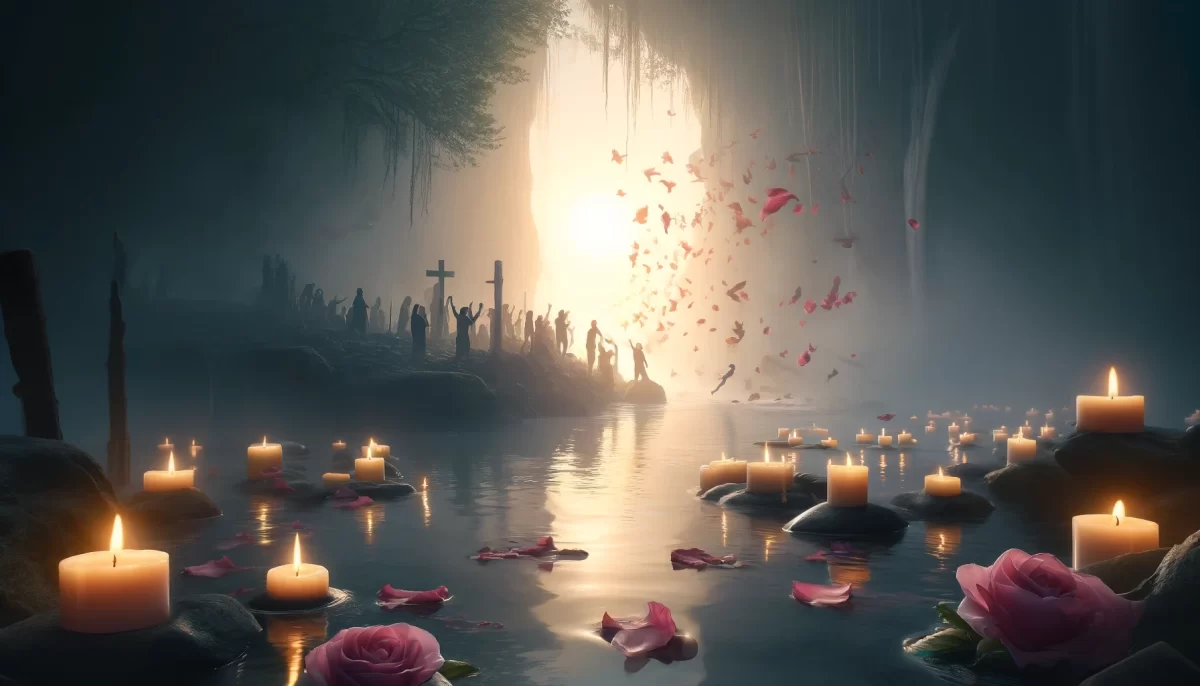
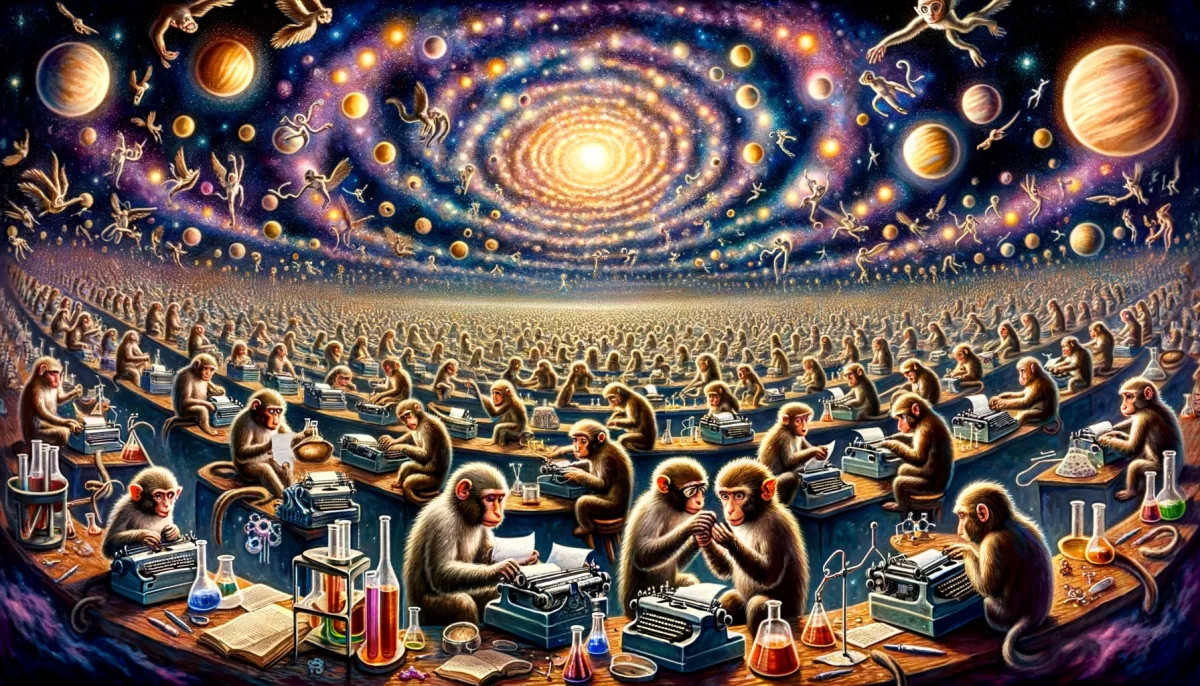
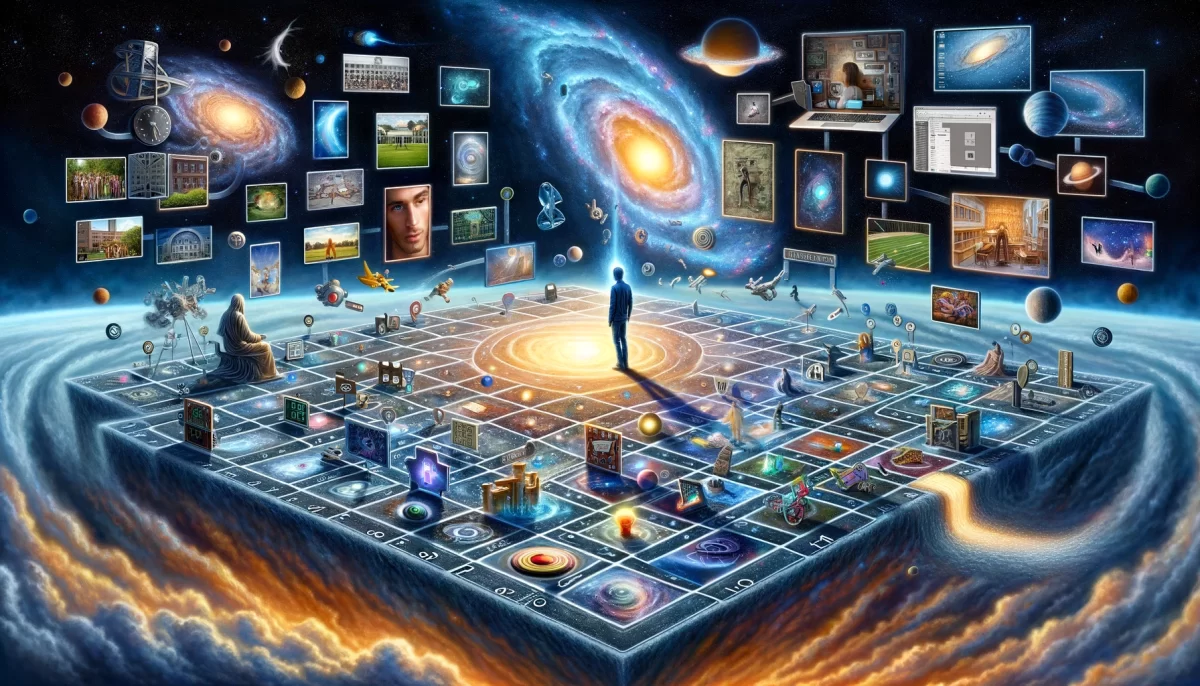
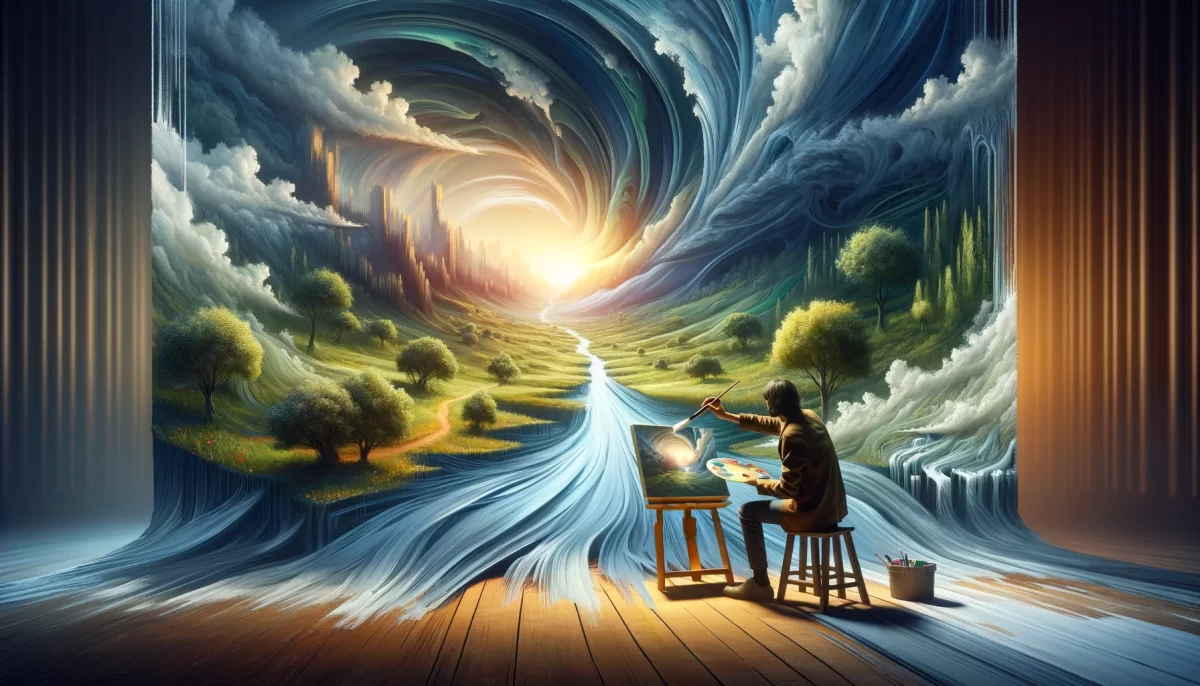
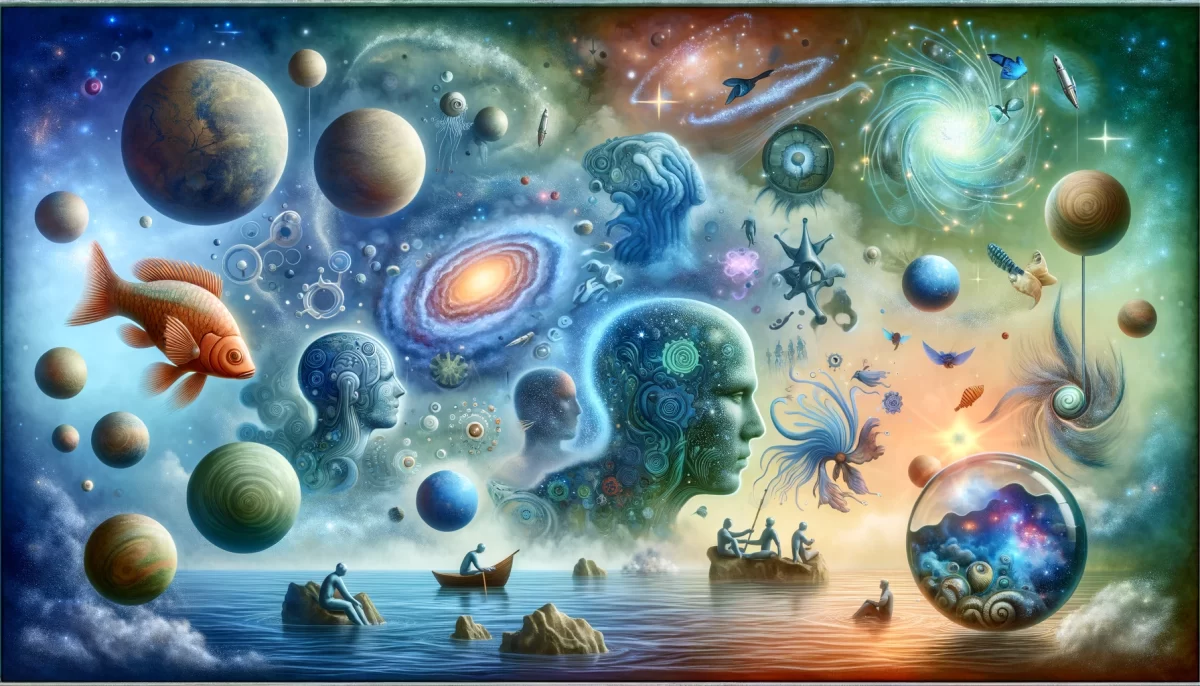
Leave a Reply